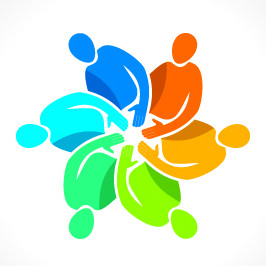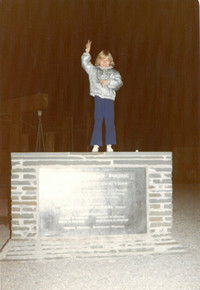Eleven years ago, after permanently residing in the United States since 1993, I became an American citizen. Naturalization is a lengthy process. And as an adult, to “absolutely and entirely renounce and abjure all allegiance and fidelity” to your birth country—a required part of the Naturalization Oath of Allegiance to the United States of America—is not a decision to take lightly.
I have loved America and its “self-evident truths” and “inalienable rights” of “life, liberty, and pursuit of happiness,” and the American values of equality, tolerance, opportunity, diversity, the common good, and justice since I first stepped foot in New York. For me, becoming a citizen represented a covenant—a commitment to and responsibility for upholding these truths and values. And I wanted to vote.

I grew up in Poland, which at the time was a Communist country firmly rooted in the Soviet bloc. In 1979, my mother, father, and I moved to West New York, then to New Jersey, and then to Raleigh, North Carolina, following my dad’s career. Instead of seeking political asylum like many of the families we immigrated with, we returned to Warsaw in 1984. Poland had endured martial law, was at the height of economic oppression, and was a few years from the rebellion that would eventually take down Communist rule in most of Eastern Europe. One of the few times I have seen my mom cry is when she ordered a half pound of ham at the store, handed over our monthly meat ration card, and did not receive any ration coupons back. Half a pound of ham for a family of three for a month. That was our allotment. We were very far from the world of Piggly Wiggly supermarkets.
 Meg Long, age nine, mimics the Statue of Liberty
Meg Long, age nine, mimics the Statue of Liberty in West New York, New Jersey.
Briefly living in the United States and then returning to Poland was both life- and character-altering. The contrast between the lifestyle that American democracy seemed to offer and our lived experiences in Poland was stark. Shortly after the collapse of Communism, I came back to the United States to attend college. I began my career working for a United Nations agency, got married, joined the OMG Center for Collaborative Learning (now Equal Measure) as a consultant, and began a family. In the more than 20 years I have lived in the United States full-time, I have learned a lot and certainly evolved as a citizen.
Perhaps the most important lesson was that “opportunity”—a concept so deeply ingrained in the fiber of American history, indeed a force that helped build our country—is often a function of who you are and where you live. I witness this dichotomy of opportunity every day—in my life, in my community, and in my work. My immigration story would most certainly be different if I weren’t a multi-lingual, upper-middle-class, educated white woman from an Eastern European country, who became versed in American culture at a young age.
Through my daily experiences, my community engagement, and my work at Equal Measure, I am in contact—directly and indirectly—with individuals whose lives are very different from my own. Through the years, I have lived among and advocated alongside communities where the privileges I experience daily are structurally, systemically, and deliberately absent. For too many people, equal opportunity to overcome systemic obstacles and to exercise agency when making decisions that affect their lives can seem a distant ideal.
In the wake of events like the attack in Charlottesville, Virginia, the challenge to lead an asset-based, solutions-oriented, equity-centric narrative—with action by and with those on the front lines of addressing structural and systemic barriers in our communities—is urgent. We cannot stand behind or ignore fear-inducing statements and hateful actions; we must elevate a different narrative, and directly address inequities and overt injustice and discrimination. Direct action, individually and collectively, is the only way we can overcome the suffocating tentacles of racism, sexism, xenophobia, and discrimination based on sexual orientation, religion, immigrant status, socio-economic status, language ability, and disabilities.
Equal Measure has heeded this call to action in several ways. As one of our core diversity, equity, and inclusion (DEI) practices, we seek to inspire new and inform current conversations about the role of DEI in the development and evaluation of philanthropic investments. We recently launched a communications campaign with two publications. This article series seeks to elevate the voices and actions of partners with whom we have worked. These partners are boldly addressing structural barriers to opportunity, making change happen, and improving individual and community outcomes.
The series will feature stories from community and technical college practitioners in California and Wisconsin; leaders of community organizations that focus on college access, opportunity youth, workforce development, and two-generation approaches to economic security in New York City, Kentucky, and rural Northern California; a social demographer who works on policy solutions tied to race, ethnicity, and social class in vulnerable neighborhoods across the country; a municipal official in Baltimore who spearheads a program on reentry from the prison system; and an organization that infuses the principles of entrepreneurialism into expanding youth economic opportunity in many cities.
Our hope is that this series inspires other communities and funders—in America and internationally—to engage in similar change efforts and to do so with equity as a central goal. It is our shared responsibility to shed light on what is working in America, to shift the narrative, and to act on our individual assets and collective strengths. It is the only way to improve life outcomes for all.
Support SSIR’s coverage of cross-sector solutions to global challenges.
Help us further the reach of innovative ideas. Donate today.
Read more stories by Meg Long.

